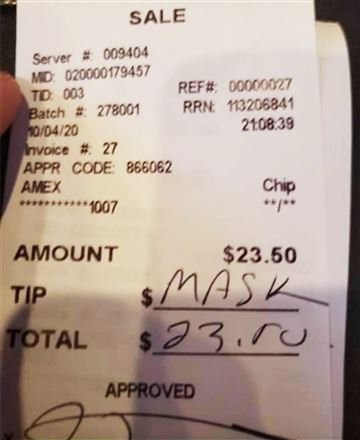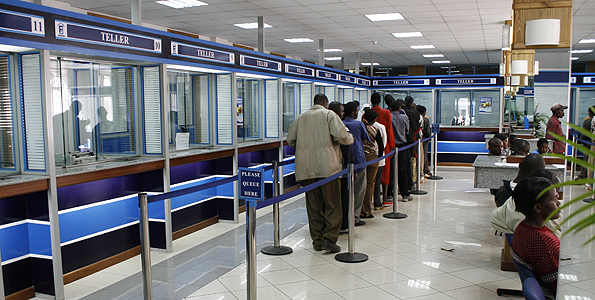There is this security woman working at a bank I visit quite often. Anytime I visit the branch and I have to wait, I just sit back and watch her.
She provides me with such great entertainment. Having spent the better part of a decade in the industry, I know her kind—those “busybody” security-cum-meet-and-greet personnel, always scurrying around the banking hall, back and forth among customers.
They are those security staff who have been warned several times not to fill pay-in and withdrawal slips for customers but they still go ahead to do just that. They are those security employees who have been told to concentrate on their security jobs but they tend to behave like customer service employees.
Thankfully, not all security personnel are like that. There are those you see, just once, and instantly and you know that these have been well trained and they know their job. This other group of security personnel are always as professional as professional could be.
However, there are always the others, like that lady. Their body language, gestures and mannerisms are geared towards one goal—for customers to favour them with some tips. You see it in their fakes smiles. You see it in their efforts to come across as friendly. You see it in their weak attempts at appearing helpful.
Sometimes, these people are able to fool customers and they end up receiving some tips. But that particular lady does it all wrong. Hers are so “forced”, so unnatural, that anyone will be able to see through her acts. I wonder how much she receives in tips every day. I definitely do not give her any.
Whenever I see this security lady at work, I feel the urge to call and give her some tips on how to increase her tips. Yes, there are actually things people—who rely on little handouts to augment their income—can do to increase their regular tips, or as my Arab friends will say, baksheesh, or as the French will say pourboire. And there is research to back the claims that these interventions have the capacity to increase tips for front line employees—for both those who are allowed to take tips like waiters, and those who are not permitted to, but they still do anyway, like my friend, the security woman.
As a matter of fact, there is one particular study that makes the audacious claim that after using the training interventions, waiters were able to increase their tips under two hours. Sounds like magic or some special anointing but that is the claim. That study was published earlier this year in the Cornell Hospitality Quarterly. It involved more than 140 employees selected from more than 60 restaurants from the French-speaking part of Switzerland.
Titled Increasing Tips in Less Than Two Hours: Impact of a Training Intervention on the Amount of Tips Received by Restaurant Employees, the study claimed that after receiving the tip-enhancing training, participants received higher amount of tips than those participants who had not received any such training. Additionally, the more tip-enhancing behaviours the participants used, the more tips they received.
According to the study, the entire tip-enhancing training lasted for just about one and a half hours but the effects were very significant. The training itself was done with a training handbook containing the various behaviours—a dozen of them—and with each behaviour, the participants were told how it is to be used, why it works and who that behaviour is to be used on.

For instance, one of the tip-enhancing behaviours customer-facing employees have to adopt is to always introduce themselves by name. I have been visiting that bank for a while. That lady has approached me on a couple of occasions but I still do not know her name. Like I said, she is just not doing the thing right. She needs some serious coaching.
It is entirely possible that this security woman does not know any tip-enhancing tips because, as a security woman, she is not expected to be behaving that way. But the truth is that I have not seen any better behaviour from the waiters and waitresses I have come across in restaurants and other eateries around the city.
Let no one kid you, tips are very important to a lot of front-line employees. Waiters, hairdressers, barbers, car wash attendants, etc. By tips, I mean, those small monetary rewards given to customer-handling employees by customers as a show of appreciation for the quality of service provided. Not the kind of inducement given before the service has even been provided. Those are bribes. Plain and simple. Those should not be encouraged, in any shape or form.
Genuine tips are however a part and parcel of the service industry and there is nothing wrong with them. As a matter of fact, tips make up a very important aspect of the remuneration of many front line staff. Without tips, the take-home pay of some of these customer-facing employees will not be able to take them home. Tips are so important that in some jurisdictions, like the United States, tips are customary, coming with a specific tag, 15% of the total amount on the bill.
Tips are so important that, in organisations where tips are an expected part of the remuneration, there are laid-down rules on how to handle tips. Tips can either be received and kept by the particular individual who served the customer or all tips can be pooled and at the close of work shared. There are merits and demerits with both systems.
If tips are that important to these customer service employees, it makes perfect sense therefore that if there is a chance of increasing them, that chance is taken. If there are ways by which employees can enhance the amount of tips they receive on the job, it is important that those are taught. Managers and supervisors should be interested in ways by which their staff can receive more tips because the more tips the staff receives, the more content the one would be. And the more content the one is on the job, the better the one’s performance.
Some of the very effective tip-enhancing actions are also very simple, such as smiling. Yes, good old smiling enhances the chances of receiving tips. It is common sense. You would not expect someone to give you money if you approach the one with a frown on your face. And as always, the smile must be genuine to be effective.
Another behaviour that has been found to enhance tips is to compliment the customer. It seems nothing works on loosening the customer’s purse strings like good old-fashioned “flattery”. It is however for front line employees to note that, like a smile, compliments must be genuine to be effective. Nothing will turn the customer off faster than a lie.
As the customer enjoys a service, it is important that the customer service employee stands not too far from the customer. That little act can earn the employee some extra tips. I believe that behaviour earns the employee extra marks in the eyes of the customer because it gives the impression that the employee is there purposely to serve that one customer alone.
Closely related to the service employee introducing himself or herself by name is to refer to the customer by name. Getting to know a customer’s name is among the rudiments of excellent customer service. Referring to the customer by name makes the service feel personalised and this will increase the chances of the tip.
It has also been proven that presenting the bill with an extra candy or sweet can enhance the chances of an increased tip from the customer. That little gift makes the customer feel that the business is spending extra on him or her. The least the customer can do is to give a little more as a way of showing gratitude.
Specific to eateries, research has found that when employees write “Thank you” on the bills, the chances of receiving good tips increases. Also repeating the customer’s order, squatting new the customer’s table as well as drawing on the bill all go a long way in helping increase the tip.
It is true that there are several factors that can affect the amount of a tip or even the chances of a tip. One of such factors is the amount involved in the transaction. This has been found by researchers to play a part in the customer’s willingness to give a tip. It has also been found that the regularity with which the customer patronises the service also affects the tip. However, what these tip-enhancing tips do is to increase the chances of customers tipping employees, regardless of the amount involved or the frequency with which the customer visits the service provider.
Even if the customer service employee is not interested in receiving any monetary rewards from customers, adopting these tip-enhancing behaviours is just the right thing to do. It makes for good customer service and offers rewards that money cannot buy.
It is one thing to know these tips and it is another thing to put them into practice effectively, without it looking canned. The key to getting the best out of the tips is to see them not as a way of making more money but just as good customer service. In that way, when the tips come in higher quantities you are happy. Even if the customer still refuses to tip, you know in your heart of hearts that you did your best.










